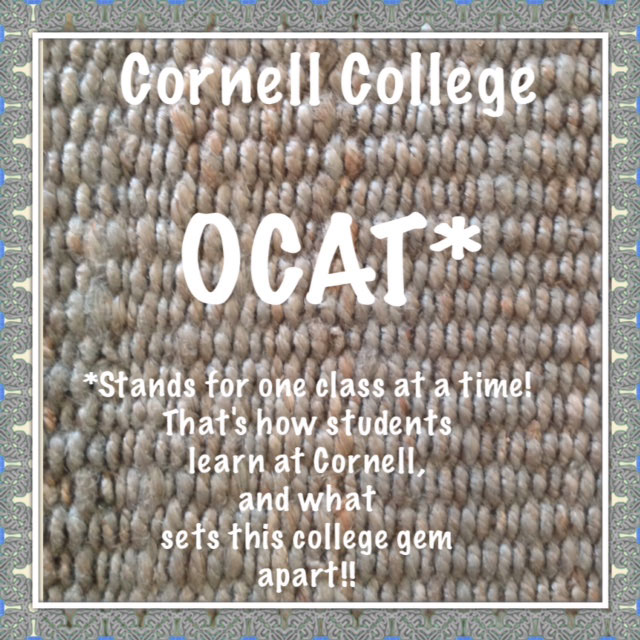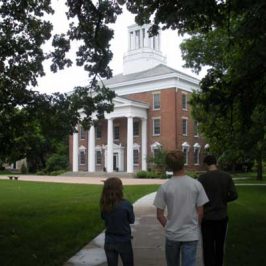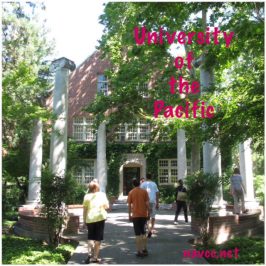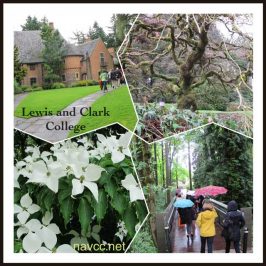Cornell College (“Colleges that Change Lives”) is a liberal arts school of 1,200 students located in the Mayberry-esque town of Mount Vernon, Iowa. The campus itself sits on a small hill and is comprised of uniform brick buildings. A student designed Frisbee golf course wends its way throughout the campus. One great aspect of Cornell is their symbiotic relationship with Mount Vernon. As an example, their library, including a wonderful children’s area serves as the Mount Vernon public library.
Cornell’s big draw and what sets it apart from every other small liberal arts college is its “One Class At a Time” curriculum, known as OCAT. Courses run for 3 1/2 weeks with 4 days off between. OCAT requires that all students are motivated learners. The professors are passionate about their subjects and expect students to come to class ready to discuss and participate. The short timetable takes a little getting used to but freshmen who start their college career here can’t imagine learning any other way. OCAT is not just a curriculum choice – it also defines the campus culture. All classes on campus are offered from 9-11 a.m. or 1-3 p.m., so after 3pm the campus is abuzz as students participate in over 120 clubs and activities. Greek life is big with 30% of students participating. Students may also choose to use a block for an internship for which they receive course credit or for a self-designed course if they want to study something not currently offered.
Cornell opened a center in Chicago that provides classes & housing, making off campus courses in the city possible too. Anthropology/sociology, art, theater, and business courses are offered at the Chicago McLennan Center.
To help students integrate their liberal arts education into the real world, Cornell has established a few different “centers” – medicine, law, economics, and literary arts. The centers offer students networking and mentoring opportunities in their areas of study as well as study sessions for the graduate tests such as the MCAT.
An advantage for science students at Cornell is that they can leave their labs in place since no one else will be using that lab during the block. They can set up an experiment, go to dinner and come back that evening without worry. All science professors conduct research and students are routinely asked to help. Summer research is big and students who show motivation and passion can be asked as early as freshman year to participate. Cornell also boasts a cadaver lab – somewhat rare for such a small school.
Cornell students come from 48 states with CA being one of the largest. About 17% come from Iowa. To get admitted to Cornell, it’s important to demonstrate solid writing skills since writing is such a large part of the curriculum. They also look for passionate, active students.
My light bulb moment during this visit was the amount of flexibility available through this type of curriculum. It’s certainly not for everyone but for those who enjoy a deep look at one subject at a time, the options are pretty endless.







